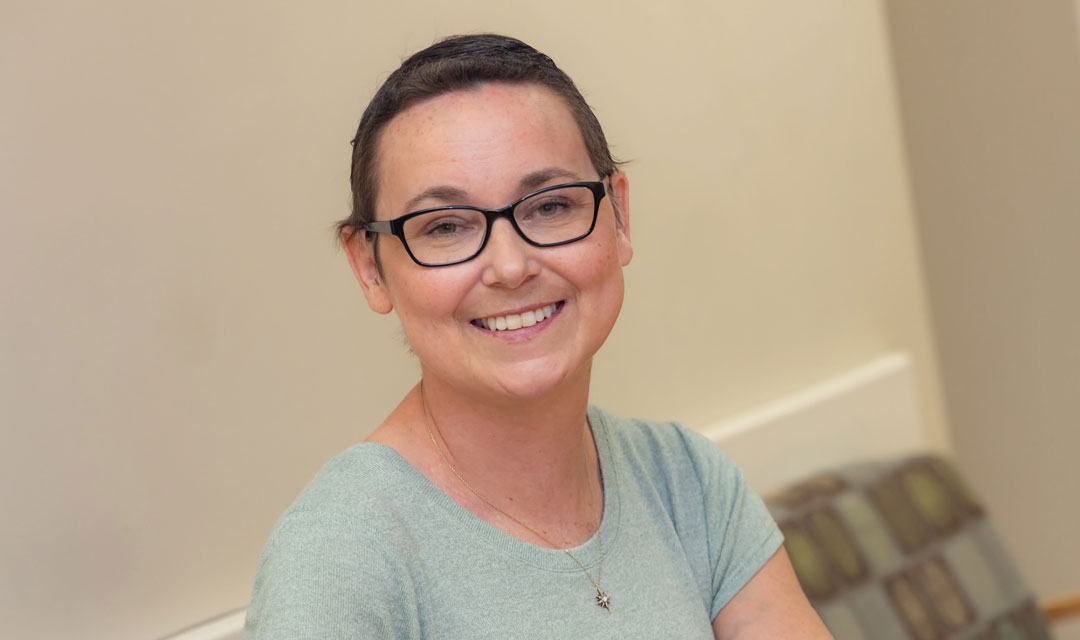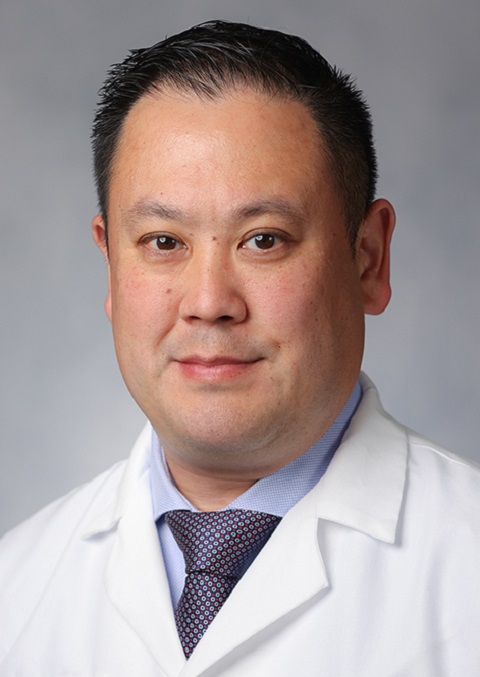“I’ve been through all the teams at NBI, and I’m still here. So they must be doing something right.”

Shannon O’Donnell is, in some ways, a typical Jersey girl. She loves to spend summer weekends in the sun, roaming the beach at Island Beach State Park with her family, friends and her dog.
But 35-year-old Shannon doesn’t take those seasonal pleasures for granted. She was diagnosed at birth with cystic fibrosis (CF), a progressive genetic disorder that affects about 35,000 people in the United States.
How Cystic Fibrosis Affects the Lungs and Other Organs
CF can range in severity, but it causes, among other problems, damage to the lungs, pancreas and other organs. In people who have CF, mucus—which is normally thin and slippery—becomes thick and sticky. In the lungs, thick mucus can block airways, making breathing difficult and trapping germs, which can lead to infection. In the pancreas, a buildup of mucus can decrease the absorption of nutrients from food, and, in the liver, thick mucus can block the bile duct, resulting in liver disease.
“I was in the hospital until I was four months old,” says Shannon, a lifelong resident of Toms River. But that was just the beginning. Over the next 25 years, Shannon endured numerous tests, treatments and hospital stays. Still, despite her life-threatening disease, “I was treated like a normal kid,” Shannon says. “I went to school, and I had chores and responsibilities at home.” She even spent three years on her high school swim team before earning a teaching degree at Seton Hall University. But, as is often the case for people with CF, Shannon’s condition soon deteriorated. “After college, my health took a big decline,” she recalls. “At the time, I was not using oxygen all that much, but, unfortunately with CF, you can get one cold and your lung function can drop.”
The Transplant
Shannon found it more and more difficult to breathe, and, in May 2012, she was referred to the RWJBarnabas Health Advanced Lung Disease and Transplant Program at Newark Beth Israel Medical Center (NBI), where she underwent a double lung transplant. According to Joshua Lee, MD, director of the program, 20 percent of lung transplants are performed on patients with CF.

“When we first see patients, they are sick and don’t have a great quality of life,” says Dr. Lee. “Transplant is not easy, but, when they make it through and you see them not needing to use oxygen, going back to their daily life and able to live a longer life…that’s why we do it.”
Dr. Lee says that patients with CF who undergo double lung transplants generally do well after surgery, and, while they still have the disease, it does not invade or compromise the transplanted lungs. Because only about 23 percent of donor lungs are accepted nationwide, according to Dr. Lee, double lung transplants are not always possible. Still, while a double lung transplant is more complicated than a single lung transplant, “We know the outcome is better,” says Dr. Lee.
As someone who had been in and out of hospitals for many years, Shannon liked the intimate atmosphere at NBI, which she felt was large enough to be fully equipped and staffed for excellence, but small enough to allow her to develop close relationships with her caregivers.
Though the program at NBI offers the same level of expertise and the latest advances in technology that larger programs provide, “There are advantages to being a small program,” says Dr. Lee. “The physicians in our program are more closely aligned and the way we communicate is much easier than in a program that performs 100 or more transplants a year.”
The Recovery
Though her recovery was not without the expected complications, including stomach ailments and adjustments of anti-rejection medicines, Shannon was soon able to disconnect from her oxygen tank and breathe without the regular lung-clearing treatments she periodically needed for most of her life. She was discharged from the hospital just eight days after her transplant. “I held the record at the time,” she says. “I was initially told it would be two weeks.”
Presurgery, Shannon’s lung function was at 19 percent. “Two months after my surgery, I was up to 66 percent,” she says. The following year, her lung function was in the high 80s.
A New Lease on Life
After her transplant, Shannon was able to go back to work for the medical supply company that used to deliver her oxygen, and later pursued new career opportunities while tutoring part-time. Today, she says proudly, “I’m finally putting my education degree to use.” In 2021, Shannon was diagnosed with lymphoma. She underwent six rounds of chemotherapy and was declared cancer-free in September. Shannon notes that one of the nurses at NBI was a nurse in the NICU when she was born. “I’ve been through all the teams at NBI, and I’m still here,” she says. “So they must be doing something right.”
To learn more about organ donation, visit NJSharingNetwork.org. To learn more about the Advanced Lung Disease and Transplant Program at Newark Beth Israel Medical Center, call 973-926-4430.